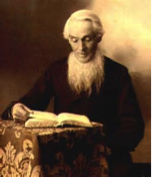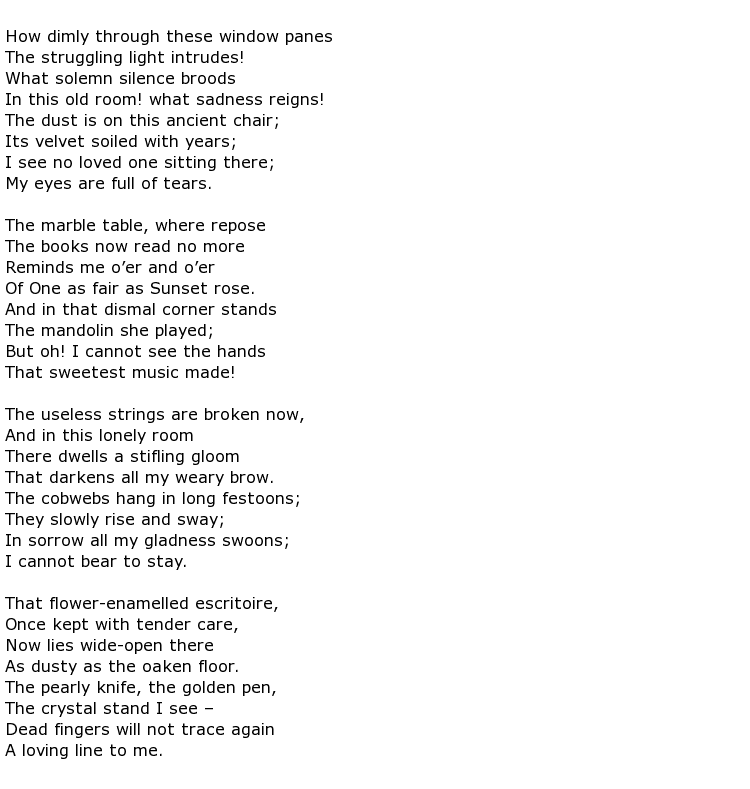 Aaron Southwick was an American poet and substantial landowner of the 19th century whose Quaker descendants could be traced back to the Mayflower arrivals 200 years previously. He was popularly known as the “Bard of Riley”, a settlement that grew up from the large parcel of land that he bought in East Kansas and developed over a number of years. It is likely that he had poems published in various publications but his only really well known book of poetry is The Starry Crown which was published in 1904, only five years before he died.
Aaron Southwick was an American poet and substantial landowner of the 19th century whose Quaker descendants could be traced back to the Mayflower arrivals 200 years previously. He was popularly known as the “Bard of Riley”, a settlement that grew up from the large parcel of land that he bought in East Kansas and developed over a number of years. It is likely that he had poems published in various publications but his only really well known book of poetry is The Starry Crown which was published in 1904, only five years before he died.
He was born Aaron Southwick (unusually for those times no middle names were added) on the 8th March 1830 in a small town called Danby, in Bennington County, Vermont. He was the second of six children and by his third birthday the family had moved to Ohio. It was a somewhat nomadic childhood for Aaron until, in 1853, he moved to southern Michigan and got married. He took up the farming life here and settled for some time, raising four children before they all moved to Kansas in 1869.
Although raised in the Quaker faith he practiced as a Methodist and a Christian Scientist in Kansas and he became the reader of the newly formed congregation in Riley. This township grew from the 160 acres of land that he purchased on arrival in the State and Southwick built the first house there, known as Union House. While farming was the first priority he soon took up as postmaster at Riley Center and also ran a store, an inn and possibly a school as well.
He found an outlet for his literary efforts in the Riley Center Independent newspaper which became half his in 1879. He was regarded as a more than competent poet with a style sometimes reminiscent of the likes of Edgar Allan Poe and Henry Wadsworth Longfellow. There were influences from Whittier and Tennyson as well. Probably his first, but unpublished, collection of work was a selection of drawings and verses set down in a notebook around 1850 while he was still a student at the Vermilion Institute.
The Starry Crown is what he is best known for though which is a collection of poetry, photographs of various family members and others plus depictions of funereal flower arrangements. Many of the poems struck a distinctly melancholy note and a good example is The Forsaken Room which appears to be his observations of the empty space where his late wife used to go about her daily routines. Here are the first few verses from the poem:

As well as grieving for his dead wife, Southwick also mourned the loss of one their five children, Nettie, who died at three years of age. Finally, he fell ill sometime during the year 1909 and, it is believed, he refused to seek medical help despite probably suffering from pneumonia.
Aaron Southwick died on the 6th April 1909, aged 79 and was buried in the town that he help to create – Riley, Kansas.

